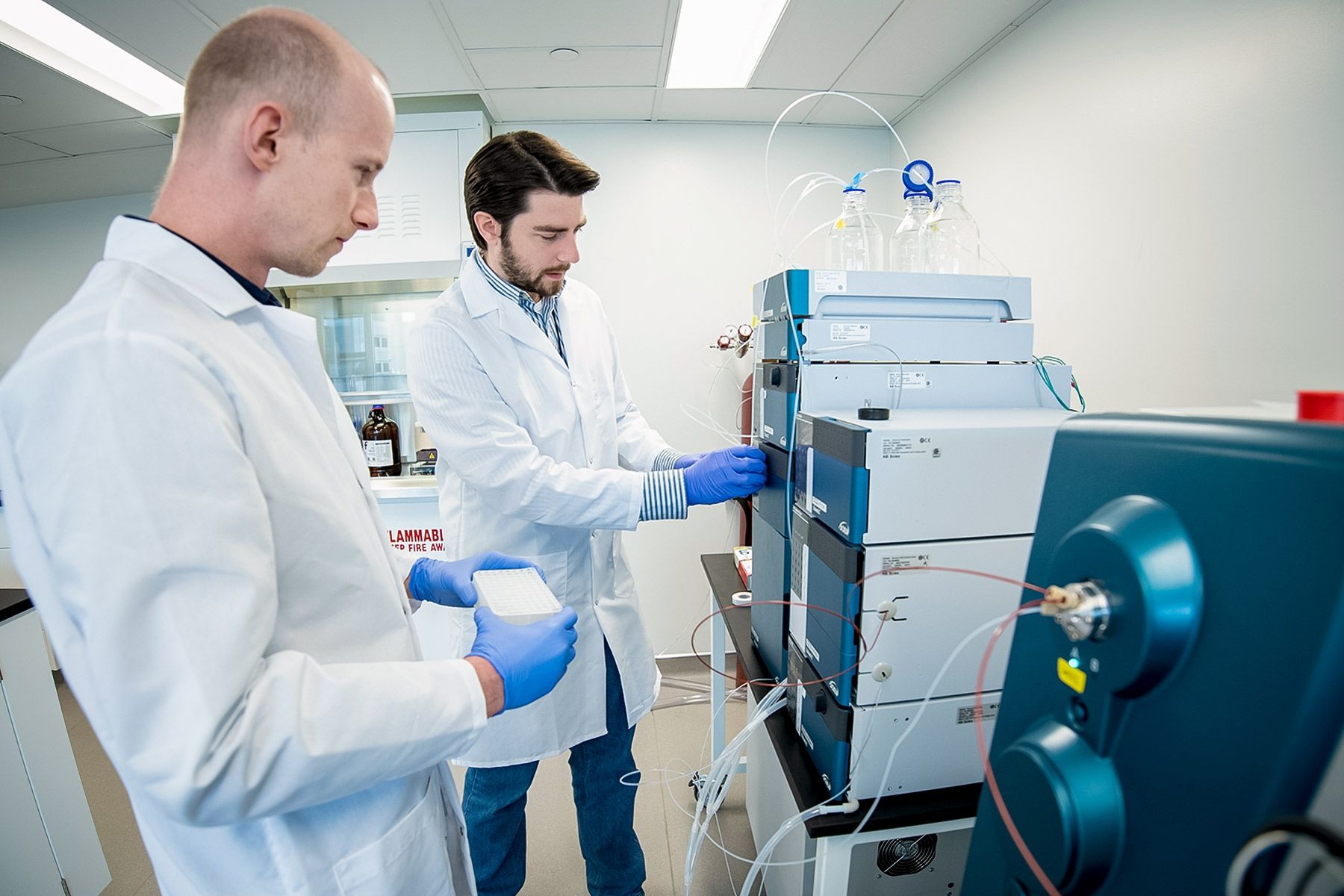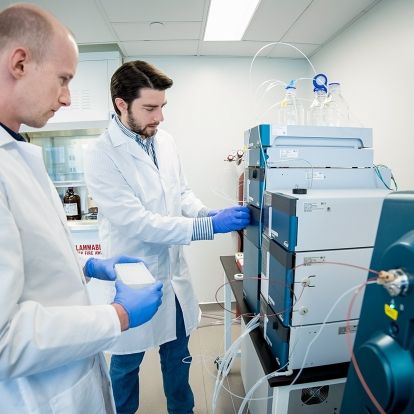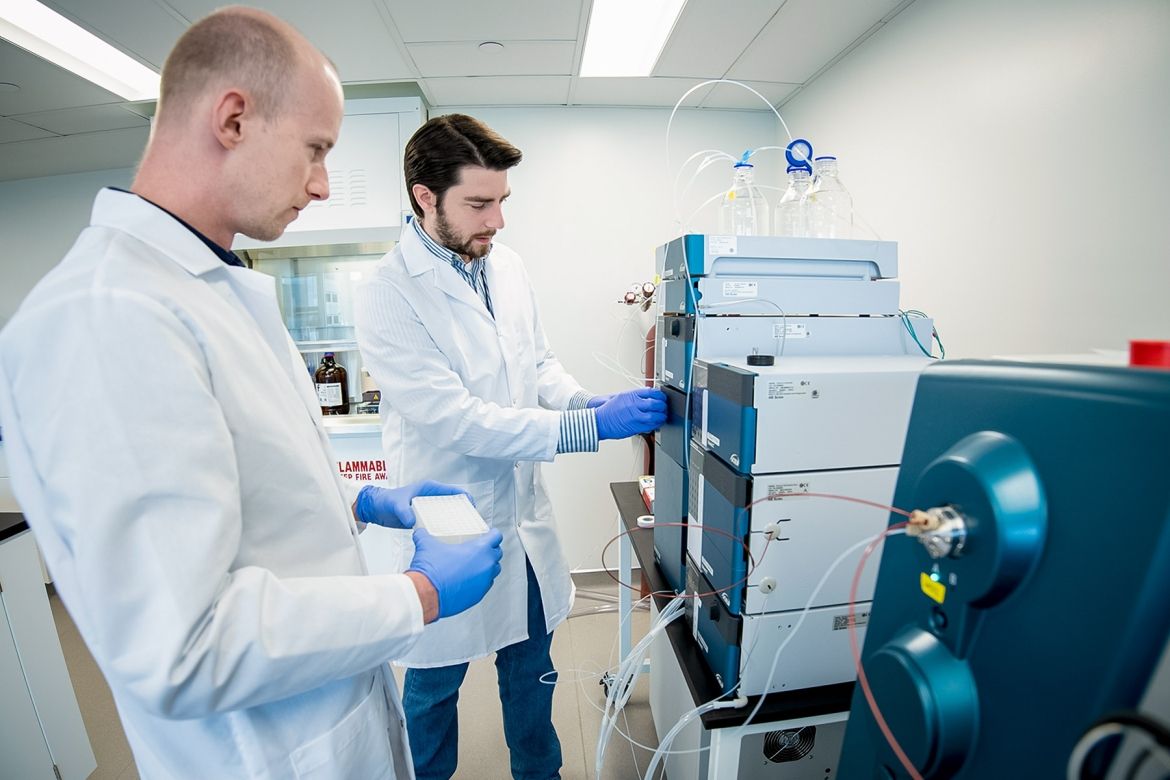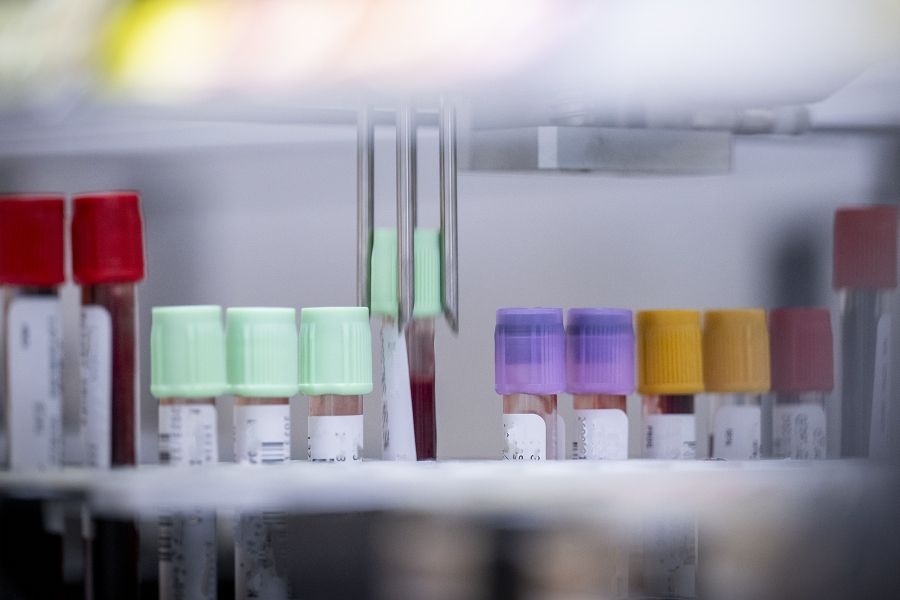
New technology in the KGH Research Institute’s W.J. Henderson Centre for Patient-Oriented Research is helping scientists accelerate their search for the causes of bowel disorders such as irritable bowel syndrome (IBS).
Mass spectrometry equipment has transformed the centre’s Gastrointestinal Diseases Research Unit (GIDRU) lab into a state-of-the-art metabolomics facility. It is allowing researchers to study the vast variety of “metabolites”, or tiny molecules, that are produced by our bodies and the bacteria living in our gut.
In healthy people, gut bacteria live peacefully together in harmony with the body. But for the 15 percent of Canadians with IBS, that relationship can be disrupted and may lead to abdominal pain and changed bowel habits. For some of these patients, certain foods can trigger these painful symptoms.
The challenge for researchers and healthcare providers is to figure out how gut bacteria and diet may cause symptoms. An additional difficulty to this complex disorder is to definitively establish which patients will benefit the most from a given therapy.
Because patients with IBS present with similar symptoms, it’s difficult to differentiate the disease, says Dr. Sean Bennet, a postdoctoral fellow who researches how diet affects the bacteria in our gut. “There are so many different triggers. But if we can identify significant levels of certain metabolites, we can ask questions like, what might be causing this? Is it the bacteria, or food, or the immune system?”
The lab’s new $500,000 system will enable Dr. Bennet and research associate Dr. Martin Kaufmann, a specialist in chemical analysis, to create exquisitely detailed chemical “fingerprints” of individual metabolites in patients with bowel disorders.
“The beauty of it is we can measure the levels of over 100 of these small molecules at once,” says Dr. Kaufmann. “It will give us insight into the complex pathways of IBS and other disorders, which are still a ‘black box’ for us.”
Currently, the researchers are looking at metabolites in urine samples from patients with IBS to identify alterations in their metabolomic profiles, both between patients and compared to healthy individuals. In the future, they will expand into inflammatory bowel disease (IBD), such as Crohn’s disease and ulcerative colitis.
Their research studies, under the supervision of Dr. Stephen Vanner, Director of GIDRU, is part of the CIHR-funded IMAGINE project, Canada’s largest-ever study of bowel disease. Clinician researchers at GIDRU are looking at the connections between diet and the bacteria found in the gut. They are more than halfway towards their goal of tracking up to 700 individuals diagnosed with IBS, Crohn’s disease and ulcerative colitis, as well as healthy volunteers, for five years, with an aim of developing better diagnosis and treatments for these diseases.
Gallery


Metabolomics researchers Dr. Martin Kaufmann (left) and Dr. Sean Bennet demonstrate new mass spectrometry capability in the GIDRU lab, W.J. Henderson Centre for Patient-Oriented Research



